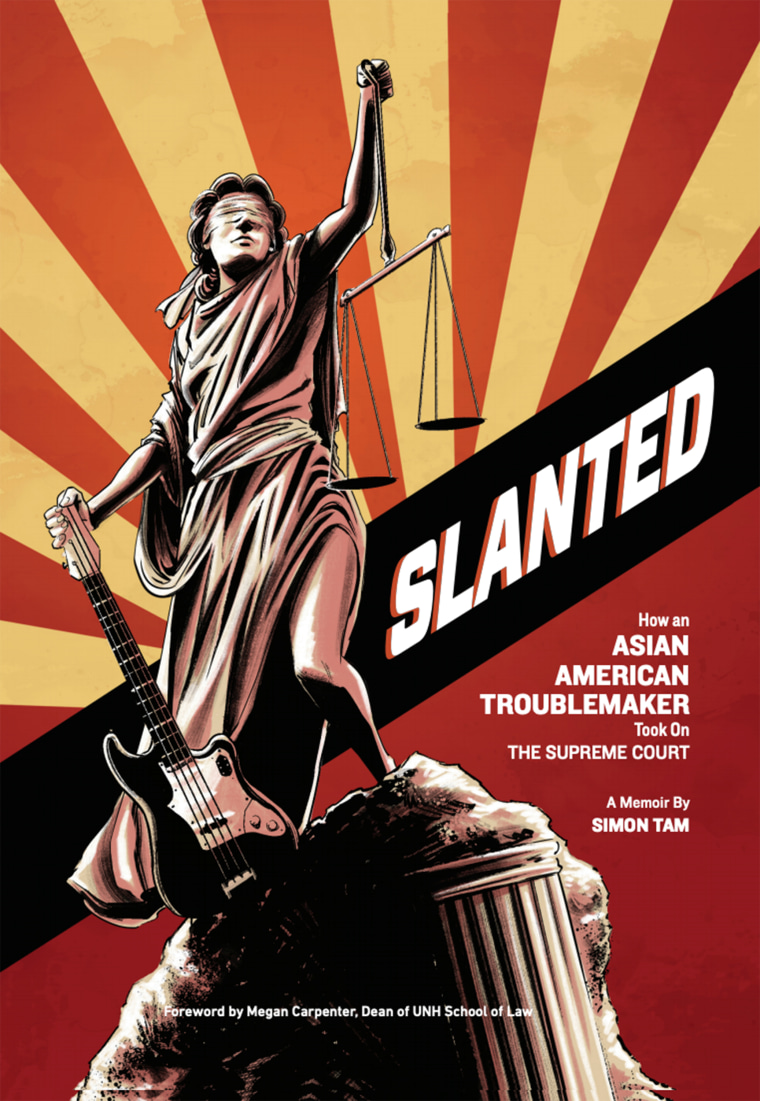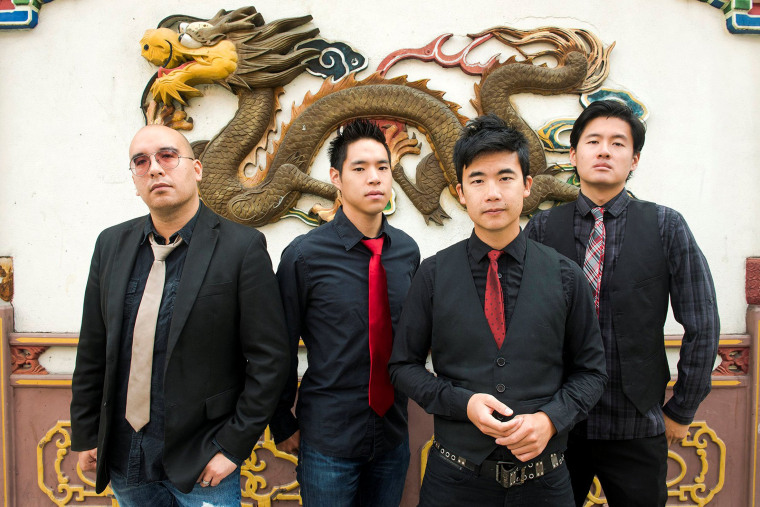For Simon Tam, oral arguments in the U.S. Supreme Court case about whether he could trademark the name of the band he founded, "The Slants," was the culmination of more than five years of hard work, broken relationships and stress.
But after the January 2017 court date, Tam didn’t take a break. Instead, he set out on two parallel tours: one playing shows with the band and another speaking at law schools and legal events. Then, he got married.
“That part was probably the most chaotic,” Tam said. “We were on tour, and I crammed about 70-plus appearances in about 60 days.”

That period of time — as well as Tam’s upbringing, musical career, and journey to the Supreme Court — are detailed in his upcoming memoir, “Slanted: How an Asian American Troublemaker Took on the Supreme Court,” scheduled for release April 30 from Tam’s Troublemaker Press.
The case began after the band lost a ruling at the U.S. Patent and Trademark Office. An agency tribunal refused to grant trademark protection for the band's name in 2013, saying it was offensive to people of Asian descent, Reuters reported. Tam appealed, eventually reaching the Supreme Court.
In publishing the memoir himself, Tam hoped to cover all aspects of his life, from growing up as a child of restaurant owners in Southern California and falling in love with punk rock in high school to the unanimous Supreme Court decision in his favor on June 19, 2017, and his discussions with members of the Native American community attempting to change the name of the Washington football team, a battle in which The Slants' case became entangled.
Tam wanted to make the book approachable for music fans, law students and Asian Americans.
Thus, the memoir covers his decision to leave college and a scholarship to join a band in Portland, Oregon (“My father frowned, the wrinkles in his forehead suddenly appearing, and his greying moustache folding over his lips”); the history of Supreme Court cases brought by Asian Americans (the most well-known dealt with Japanese American incarceration or citizenship); and the breakup of an engagement as the case wove its way through the courts (“...we just maintained the illusion that we were still together until she bought her one-way ticket”), among other portions of Tam’s life.
While much of the past decade has been a “blur,” Tam said, putting the memoir together in part from video recordings, essays, speaking engagements and journals was actually quite easy.
“The more difficult part is always narrowing down everything,” Tam said. “But I think actually traveling and speaking about the story on a regular basis helps — naturally certain stories would resonate with different audiences better than others, and that’s what kind of gave me a really good clue as to what people really enjoyed.”
Since the case has been decided, Tam has moved to Nashville and is in the process of setting up The Slants Foundation, which will aim to provide "resources, scholarships and mentorship to Asian Americans looking to incorporate activism into their art."
Tam plans to have the group focus on lessons he learned himself, including teaching artists how to run the business side of their projects, helping them navigate grants and funding, and helping them finance projects. Troublemaker Press also has more books planned, including one detailing the world’s forgotten feminist folk tales.
Tam said the world has changed greatly since he decided to pursue music, especially when it comes to representation of Asian Americans. He got into music in part because he wanted to share an Asian American perspective. He wrote this memoir for a similar reason.
“I think that’s there so few representatives in the entertainment industry,“ Tam said. “I mean, we’re seeing more of it now … but when I started this band, there was nobody.“
He credited the filmmakers behind “Crazy Rich Asians” and a new generation of comedians and musicians for expanding Asian American representation. He attributes much of that success to consistent hard work and diligence, which is evident in his own life.
“It seems that we’ve become so impatient these days, especially when we see wrongs in our world,” Tam said. “I want to encourage folks that you can persist. … If you show up on a regular basis and you work hard at it, over time you’ll start seeing positive changes being made.”
Follow NBC Asian America on Facebook, Twitter, Instagram and Tumblr.

